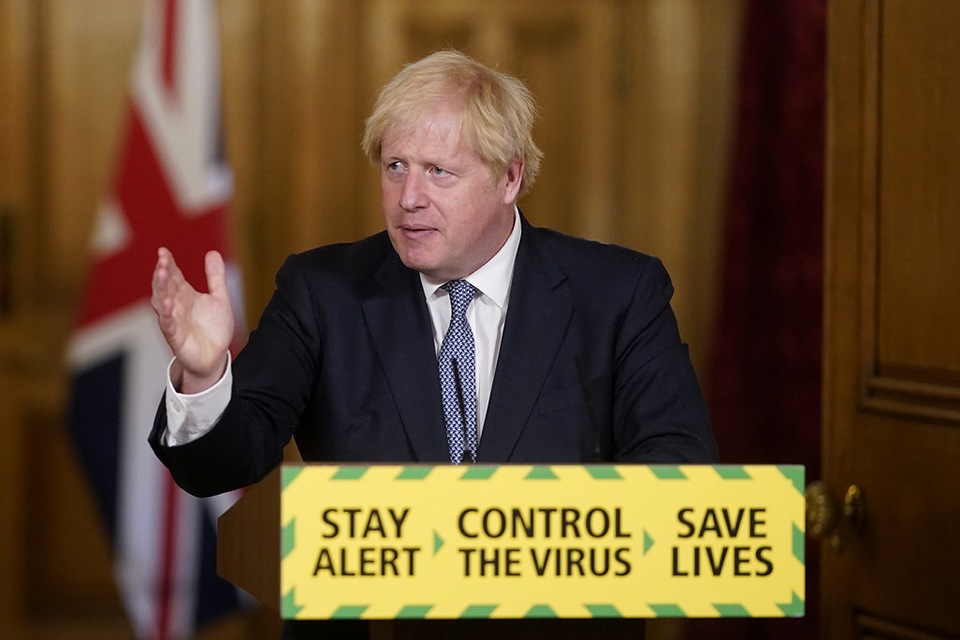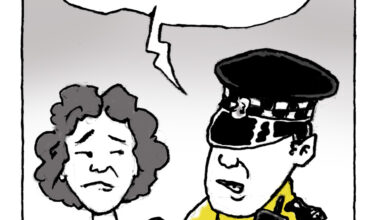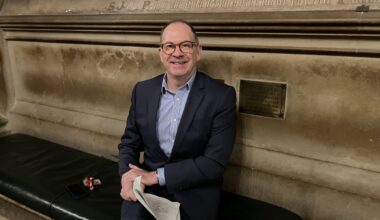
Of all of the negative consequences of ‘lockdowns’ and associated restrictions during the pandemic in the UK, school closures may well have been the worst. Even at the time of the first lockdown, the Children’s Commissioner warned that ‘prolonged periods out of school [were] extremely damaging for all children’. Two years on, we hear almost daily about the negative effects of shutting the schools. The most distressing of these effects is well known: the appalling realisation that it is often at school where child abuse is identified, and therefore often school where the rescue of children from such circumstances begins. The cases of Arthur Labinjo-Hughes and Star Hobson can be thought of as the tiniest tip of a vast iceberg of unnoticed suffering that went on behind closed doors during 2020 and 2021.
At a much more mundane but pervasive level, it is now evident that disengagement and disaffection among school pupils and university students is widespread. We should hardly be surprised that, having been told for a year that their education did not particularly matter and attendance at school and taking exams were superfluous, young people took the message to heart. We may be reckoning with the existence of this ‘lost generation’ for the rest of their lives.
Readers may be surprised, then, to discover that the legal basis by which schools were originally closed on 20th March 2020 in England is still not clear. The original idea was for schools to remain open. But casting one’s mind back to that period, one will remember the sense of panic that had set in not just among the public but among our politicians. In an anxious, febrile atmosphere, Boris Johnson appeared on television on 18th March, to announce that all schools would close by the following Friday, 20th March, ‘for the vast majority of pupils’.
Yet in our constitutional framework, it is not for the Prime Minister, or, indeed, any other member of the government, to close schools simply by edict. The government, as the executive branch, has no power to do anything that is not either derived from certain ‘crown prerogatives’ (i.e. powers that the monarch still technically possesses but does not exercise, such as the power to make war) or statute. In the modern age, this is supposed to mean that the government has almost no powers that are not granted to it by the legislature – namely, the House of Commons which the people elect (the unelected House of Lords having a residual supervisory role). This is in essence what democracy in the UK means: the electorate chooses its representatives, and out of those representatives a government is formed which derives its power from them.
This is also part of what is meant when people talk about the ‘rule of law’: the government does not rule by decree, but through powers granted to it by law. Parliament creates law in the form of statutes, and it is these which permit the government to act (unless exercising one of the crown prerogatives). And when the government does act, it is only supposed to do so in the form of so-called ‘delegated legislation’ – the making of regulations and various other rules which it is expressly permitted to do by statute.
To give a recent illustration, the current government wishes to impose an obligation on gas and electricity companies to install ‘energy efficiency’ measures, such as solid wall insulation, in people’s homes. It cannot do this simply through issuing an edict or telling energy companies what to do. In the absence of an Act of Parliament requiring energy companies to take these measures, the relevant Minister must create delegated legislation through a power specifically granted to him or her by Parliament through a statute. Three statutes taken together – the Gas Act 1986, the Electricity Act 1989, and the Utilities Act 2000 – permit this. The current Secretary of State’s department has duly created a draft statutory instrument to achieve the government’s aim. This is how thing are supposed to work: Parliament creates statutes setting out the powers of the government, and the government governs in accordance with those powers.
The power to order schools to close is not a crown prerogative, so it has to be derived from a statute, and can only lawfully be given in the form of delegated legislation. Yet here was Boris Johnson, the Prime Minister, simply appearing on the screen to tell us it was so. This was something that was not supposed to happen in our constitution: the executive is not a medieval absolute monarch commanding the population at will, but here it was doing so before our very eyes.
This has caused some awkwardness for the judiciary. In the principal legal challenge to the ‘lockdown’ regulations, Dolan v Secretary of State for Health and Social Care, the claimants argued among other things that the closure of schools had been a breach of Article 2 of the First Protocol to the European Convention on Human Rights – namely, the right to education. This was dismissed in the High Court on the rather strained reasoning that since there had been ‘no power…exercised so as to impose any legal requirement on any school in England to close’, the government had merely ‘requested’ it – as though any school head could realistically have failed to comply with an announcement made by the Prime Minister on national television.
The absurdity of this position was revealed a few months later when the Supreme Court admitted, quite openly, in its judgment in the otherwise unrelated FCA v Arch Insurance case that the purpose of Boris Johnson’s statement on 18th March 2020 had been ‘to announce the closure of schools’ and had indeed been an ‘instruction’ for them to do so. Quite what this means for the finding of the High Court in Dolan is anyone’s guess; it is now an academic question in every sense of the word, as leave to appeal the High Court’s decision with respect to school closures was dismissed by a strikingly uninterested Court of Appeal a few months later – though before the Supreme Court’s loose talk in FCA v Arch Insurance.
Beyond the judiciary tying itself in knots, however, the manner by which the government went about closing schools in March 2020 is really only an illustration of a much broader trend: the circumvention of Parliament by ministers.
Government ministers have every reason to consider Parliament a pesky, and often petty, hindrance to the achievement of their grand designs. The requirement that MPs vote before a statute can be passed is risky – the vote might be lost – but is also an opportunity for MPs to engage in time-consuming and complicated horse-trading. For governments, interested in getting things done and, above all, getting re-elected, this is all highly inexpedient. The history of British politics, certainly since the opening up of the franchise between 1832-1928, can be thought of as a long and continuous struggle, fought by successive governments of every political stripe, to wrest control away from the legislature and govern directly.
One facet of this struggle, and among the most prominent, is an increasing deployment by ministers of delegated legislation, and an increasing tendency for statutes to be enacted giving very wide powers for them to do so. Successive governments, while not themselves passing primary legislation, have very often been the originators of it. And they have gradually cottoned on to the idea that they can bypass Parliament, essentially by having it pass statutes that permit ministers to make all manner of rules, regulations and orders of their own, with minimal Parliamentary scrutiny. The use of such ‘skeleton’ Bills is becoming more and more common – so much so indeed that three House of Lords Committee Chairs have written to the government to express their concern about the practice, and the Hansard Society has launched a major project to review the manner in which delegated legislation is used.
Perhaps even more concerning is the growing realisation on the part of government that the use of television and social media can allow the executive to communicate to the electorate directly, and thereby, if not to impose law, then to shape and ‘nudge’ behaviour towards desired goals without having to go through any formal process at all. This has, of course, been a route available to governments since the invention of the radio. But the ubiquity of mass media in the current age has given them the power to speak directly to the population, and thus to influence its behaviour without scrutiny or legal authority, as never before.
The response to the pandemic indicated the extent to which we have begun to grow used to these trends. Boris Johnson’s ‘school closure’ press conference was only one example of many during the pandemic period in which government ministers appeared on TV to tell the population what to do – generally with no legal basis.
There was Michael Gove’s statement, for instance, on the Andrew Marr Show on the 29th March 2020, to the effect that people should only go out for an hour’s walk a day. This principle was duly reported everywhere as though it was law, when it appeared nowhere in the relevant regulations. Then there was Matt Hancock’s infamous ‘backing for the police’, delivered on 9th January 2021, after the officers of the Derbyshire Constabulary fined two women £200 for meeting up for a walk around a reservoir on the basis that it was ‘not in the spirit’ of the lockdown – a fine for which, again, there was no legal basis. And who could forget the autumn of 2020 and the interminable debate about whether or not ordering a scotch egg would be enough to allow a customer to be served alcohol in a pub, with government ministers lining up to offer their own interpretations of the law – a task normally reserved for judges.
The Coronavirus Act 2020 garnered many of the headlines in March 2020. Consequently, it may be surprising to discover that effectively none of the regulations to which we were subject during the entire course of the lockdown era – mask-wearing, the closure of essential shops, the ‘tier’ system, the ‘rule of six’, and so on – came in the form of a statute passed by Parliament. All of the regulations were delivered by the Secretary of State for Health and Social Care, or another Minister, in the form of delegated legislation deriving from powers under the Public Health (Control of Disease) Act 1984, as amended in 2008. Often this was done with no Parliamentary scrutiny whatsoever; in some cases, the statutory instruments in question were laid before Parliament mere minutes before they became law. Setting aside the substance of these measures, the manner in which they were adopted truly represented Lord Hailsham’s old description of British government as an ‘elective dictatorship’ – chosen by the electorate once every five years or so, but otherwise more or less free to do as it wished.
We now find ourselves in more sober times, with space to reflect on the experiences of the Covid era and what they have told us about British governance. One of the clearest messages to emerge is that Parliamentary democracy as we have previously understood it is in a weak position. The present government has shown a marked tendency to be dismissive of the House of Commons, and by the same token also rather contemptuous of the voters who elect its MPs.
This clearly poses problems for democracy, but it also results in bad decision-making. There is a tendency to portray swift executive action as being necessary in times of crisis. Yet scrutiny of executive decisions almost always makes them better. School closures, to return to the subject which opened this article, are a case in point. It is now widely accepted that schools should never have been closed – as even the current Secretary of State for Education now admits. It was a decision made in haste, with little thought for the long-term consequences. The same is true of many other aspects of the lockdown period.
It might be argued that those measures – even school closures – were popular, and widely supported by MPs, and hence would likely have come about regardless of the procedure by which they came into effect. But that would only be to trot out one of the oldest, and worst, arguments against due process: that it is pointless to go through the motions when the outcome is already known. The point, of course, is that the very act of going through the motions requires careful thought and deliberation, not to mention transparency and scrutiny, with a better and more considered decision the inevitable result.
Now that normality has returned to our daily lives, hopefully for good, we must think very hard about how we can return to more normal constitutional arrangements. The government must be made to govern in a way that properly incorporates the views of the people’s representatives in the legislature – for reasons both of democratic legitimacy and sensible decision-making.
Enjoy this article? Subscribe to our free fortnightly newsletter for the latest updates on freethought.








1 comment
Your email address will not be published. Comments are subject to our Community Guidelines. Required fields are marked *
Donate